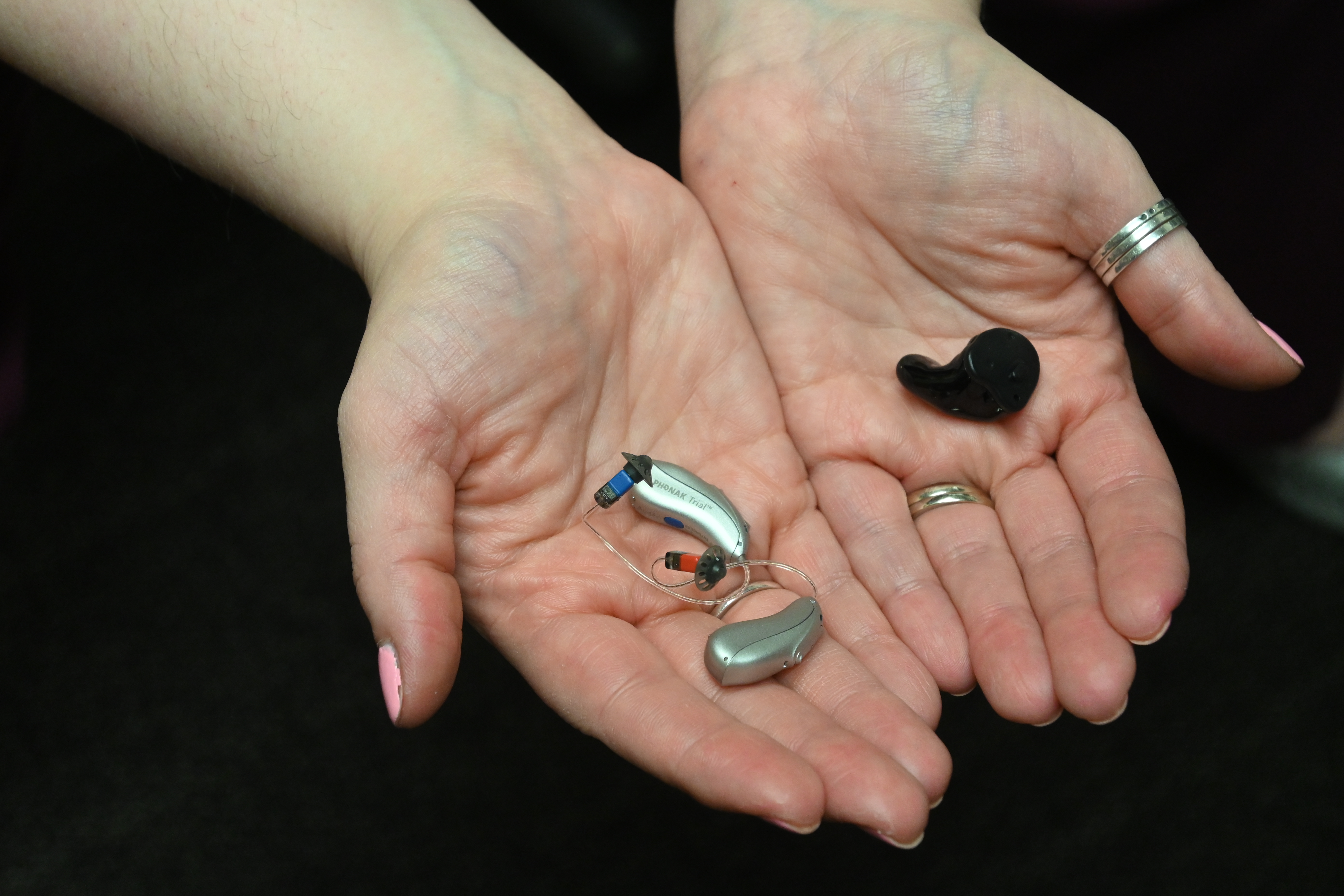The Role of Speech-Language Pathology in Hearing Loss Treatment
According to the World Health Organization, more than 430 million people globally require rehabilitation for debilitating hearing loss. Although hearing loss management is commonly associated with hearing aids, sign language, and other audiological practices, speech-language pathologists (SLPs) also play a big part in hearing loss treatment.
“We learn how to produce our sounds, in part, by hearing what they should sound like,” said Robert Serianni, MS, CCC-SLP, FNAP, chair and program director of the SLP program at Salus University. “So, for those with pre-lingual hearing loss (meaning hearing loss before learning to talk), articulation and the ‘clarity’ of speech is greatly impacted.”
For those with hearing loss, especially in children who have experienced hearing loss from a young age, it may be more difficult to learn to pronounce words and speak clearly. This can consequently impact the ability to communicate with friends and family, and participate in activities like school, work, or recreational events.
What is Aural Rehabilitation?
The American Speech-Language-hearing Association (ASHA) defines aural rehabilitation as the combination of services provided to an individual with hearing loss by audiologists and/or SLPs to improve quality-of-life in a range of interpersonal, psychosocial, and educational areas. This may include clinical services such as hearing devices, assessments, and therapies, as well as other support services like counseling, advocacy, and education for those with hearing loss, their families, and the general public.

“Those that lose their hearing while learning sounds or even after learning their sounds, might not be able to regulate through auditory (hearing) means and therefore greatly benefit from aural rehabilitation,” said Serianni. “The team of SLPs and audiologists can work together to make sure what hearing is available can be accessed to habilitate or rehabilitate speech sound production for better intelligibility while talking and improve quality of life.”
SLPs play an integral role in the aural rehabilitation process, providing a variety of the following services:
- Conducting speech-language assessments and defining speech-language goals within an individual’s plan of care in collaboration with the individual, their family, and other professionals (like audiologists).
- Providing individual or group counseling to help build speech-language skills: conversational strategies, modifying the listening environment, communication, self advocacy etc.
- Providing information about other resources, or referrals to other professionals if needed.
- Advocating for the communications needs of all persons, including those with hearing loss.
Although speech-language pathologists and audiologists may have differing approaches to aural rehabilitation, both can be an integral and effective part of hearing loss treatment. “Much like our [audiologist] colleagues at the Pennsylvania Ear Institute, we are going to do a full assessment to look at what the needs are of the client and their family and then create a plan of care to address the gaps in strengths versus challenges,” said Serianni.
For more information about speech-language pathology treatment for hearing loss, or hearing loss treatment in general, visit the Speech-Language Institute (SLI) or the Pennsylvania Ear Institute (PEI).